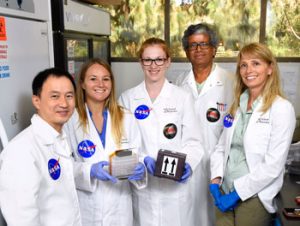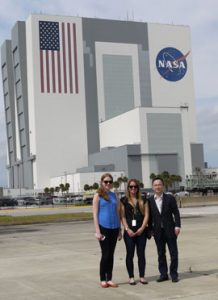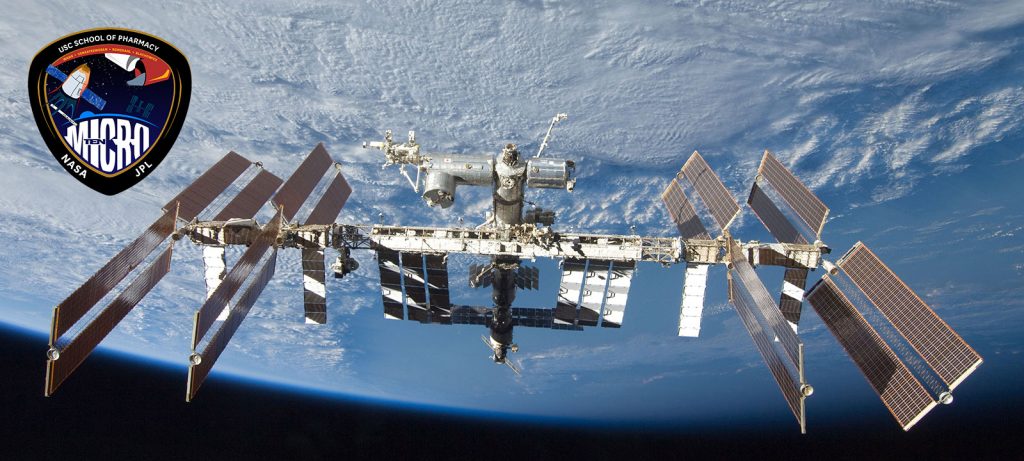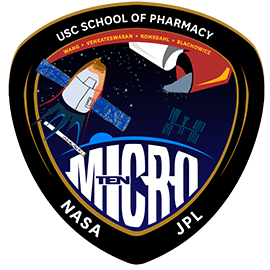Researchers at USC School of Pharmacy and NASA’s Jet Propulsion Laboratory (JPL) say they are the first team in the world to launch fungi into space for the purpose of potentially developing new medicine for use both in space and on Earth.
USC and JPL researchers sent specimens of Aspergillus nidulans to the International Space Station aboard the SpaceX resupply mission that launched from Cape Canaveral Air Force Station in Florida at 1:43 p.m. PDT on April 8.
The stressful microgravity environment of the International Space Station (ISS) could trigger changes in a fungus called Aspergillus nidulans, potentially leading to new drugs, said Clay Wang, professor of pharmacology and pharmaceutical sciences at USC School of Pharmacy, who heads the USC-JPL collaborative study, Micro-10.

“This is the first project where we see an intersection between pharmaceutical science and space exploration,” Wang said. “Drugs have an expiration date. NASA’s human mission to Mars is expected to last anywhere from one to three years. Not all drugs are going to be stable in that time period, so the ability to make drugs in space will enable us to go further away from Earth and will also benefit future space explorations.”
A Trailblazing Path of ‘Firsts’
“As the only school in the nation that spans the entire spectrum of pharmaceutical development to clinical care, USC School of Pharmacy has cleared a trailblazing path of many ‘firsts’ that others have followed,” said Interim Dean Glen Stimmel. “USC School of Pharmacy’s collaboration with NASA-JPL is a first for any pharmacy school in the world, and I applaud Dr. Wang and the entire Micro-10 team for their innovative research.”
Scientists said molecules from Aspergillus nidulans also have the potential to be used on Earth in anti-cancer, anti-fungal and Alzheimer’s disease studies.
Kasthuri “Venkat” Venkateswaran, senior research scientist at JPL and co-principal investigator in the Micro-10 study, said the new compounds that might be produced in space could be valuable for humankind.
“This is an ambitious project for NASA to see if we could have some breakthrough in space biology,” Venkat said. “Until now, we have sent bacteria and yeast to the ISS. We have also exposed fungi to facilities outside ISS, but this is the first time we are growing fungi inside ISS to seek new drug discovery. NASA needs to develop self-sustaining measures to keep humans healthy in space because calling 911 is not an option.”

Four different Aspergillus nidulans strains will be stored at 4 degrees Celsius (39.2 degrees Fahrenheit) and placed in the payload of SpaceX CRS-8. Once the spacecraft reaches the International Space Station, the fungi will be placed in ideal growth conditions at 37 degrees Celsius (98.6 degrees Fahrenheit), where they will remain for either four or seven days. Then the fungal payload will be cooled to 4 degrees Celsius. After splashdown in May, the samples will be returned to USC School of Pharmacy, enabling Wang and his team to analyze the data with a control sample grown on Earth.
USC School of Pharmacy doctoral students Jillian Romsdahl and Adriana Blachowicz participated in the project.
NASA’s Space Biology Program, which aims to uncover new basic knowledge that could equip the agency for human space exploration, provided USC School of Pharmacy and JPL $600,000 for this study.
Read more about the mission in Los Angeles Times, Newsweek, Pharmacy Times and Popular Science.



